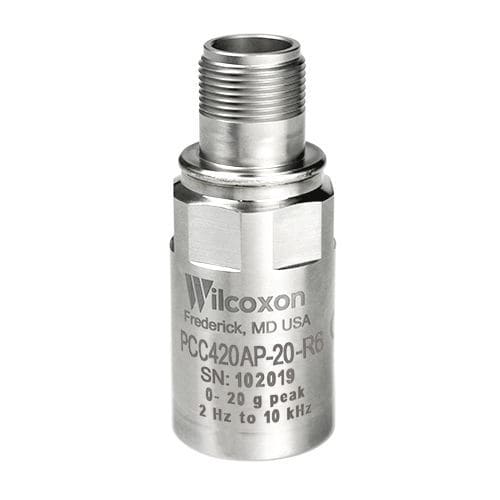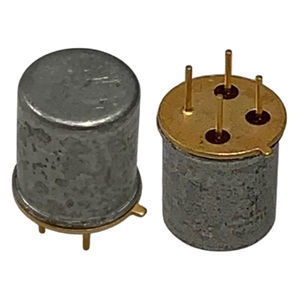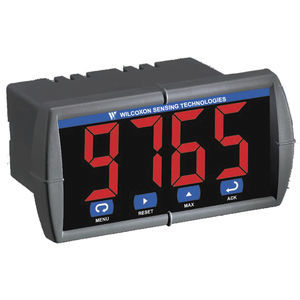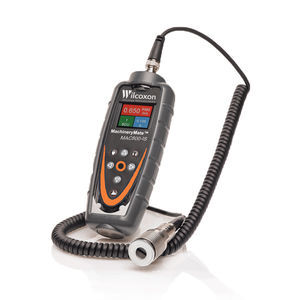
- Detection - Measurement
- Optical and Acoustic Measurements
- Compact vibration sensor
- Wilcoxon Sensing Technologies
Compact vibration sensor PCC420 series


Add to favorites
Compare this product
Characteristics
- Other characteristics
- compact
Description
Wilcoxon’s PCC420 series sensors provide a 4-20 mA output proportional to overall vibration, allowing for continuous trending of machine health. This trend data alerts users to changing machine conditions and helps guide maintenance in prioritizing the need for service. The choice of RMS or peak output allows you to choose the sensor that best fits your requirements.
4-20mA output (acceleration or velocity)
Easily incorporated into existing CBM programs
Continuous trend data simplifies monitoring of machine vibration
More compact housing than legacy PC420 models
Available with a 2-pin MIL or 4-pin M12 connector
Vibration monitoring plays an essential role in predictive maintenance through detection of the vast majority of machinery faults. Trending vibration data allows you to monitor a variety of machines without the need for detailed spectrum analysis. The use of 4-20mA sensors establishes a cost-effective condition-based monitoring program that can be used even if you’re not a vibration expert. The overall level of vibration is represented by a loop current of 4-20 mA, where 4 mA represents no vibration and 20 mA represents a sensor’s full scale vibration level. This loop current indicates general machine health with no complex analysis required when compared against standard vibration guides. Since many process control systems already accept 4-20 mA inputs, vibration data can be incorporated with common monitoring parameters such as pressure, temperature or flow.
Catalogs
No catalogs are available for this product.
See all of Wilcoxon Sensing Technologies‘s catalogsOther Wilcoxon Sensing Technologies products
NEWEST PRODUCTS
Related Searches
- Acceleration sensor
- Piezoelectric acceleration sensor
- Compact acceleration sensor
- IEPE acceleration sensor
- Industrial acceleration sensor
- Vibration analyzer
- Vibration sensor
- Vibrating acceleration sensor
- Rugged accelerometer
- Portable vibration analyzer
- Machine monitoring vibration analyzer
- Hermetic accelerometer
- High-sensitivity acceleration sensor
- Biaxial accelerometer
- General purpose acceleration sensor
- Miniature accelerometer
- Low-frequency acceleration sensor
- Low-noise acceleration sensor
- Power sensor
- High-temperature acceleration sensor
*Prices are pre-tax. They exclude delivery charges and customs duties and do not include additional charges for installation or activation options. Prices are indicative only and may vary by country, with changes to the cost of raw materials and exchange rates.










